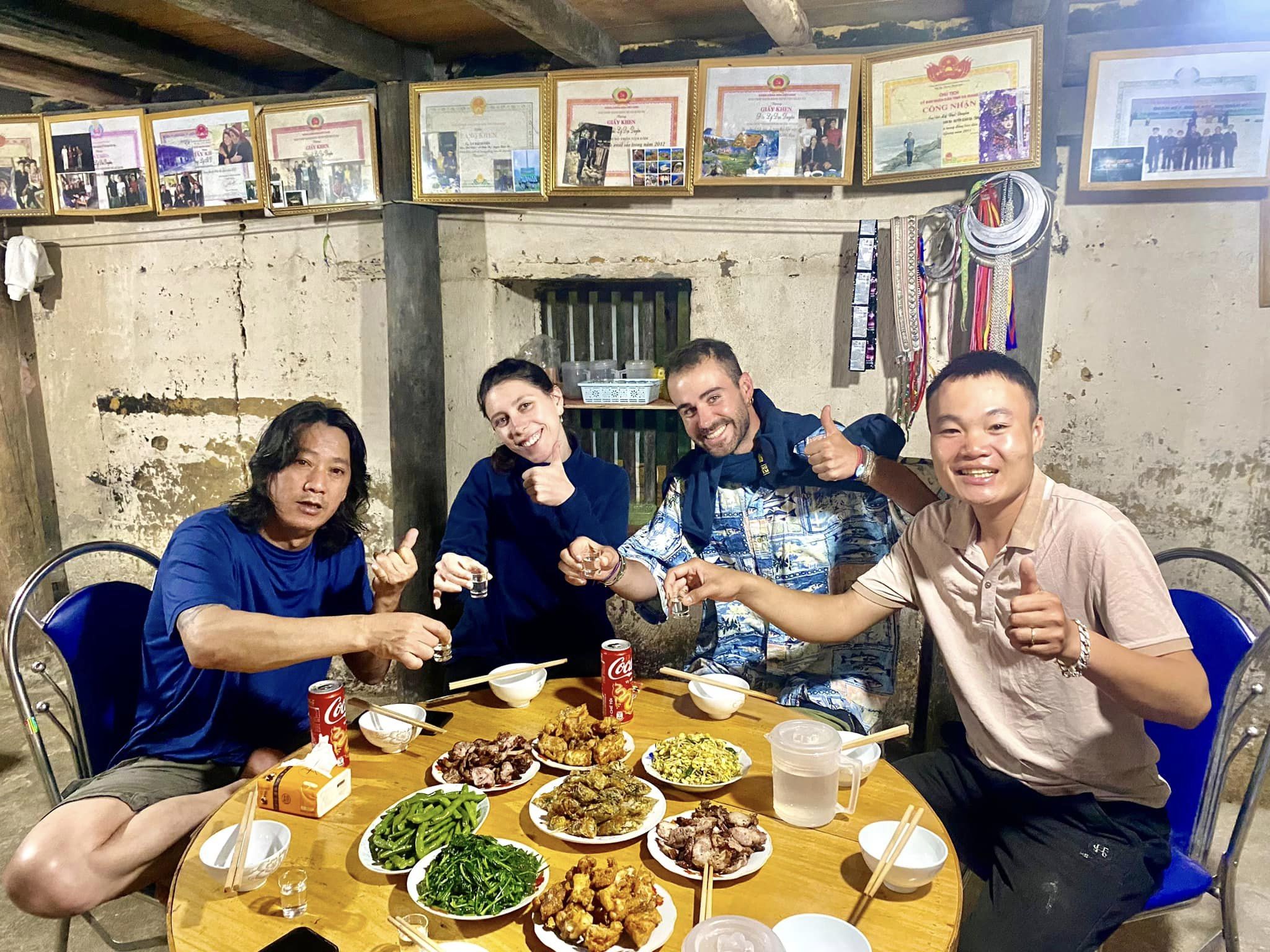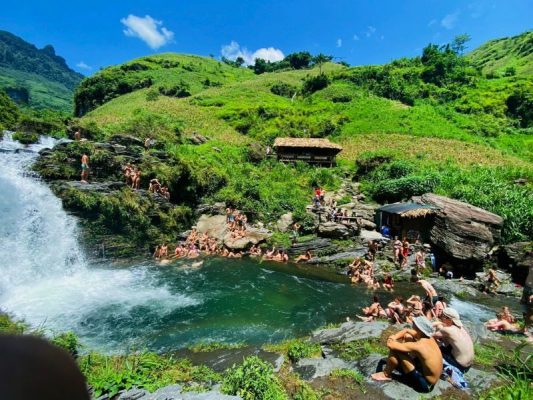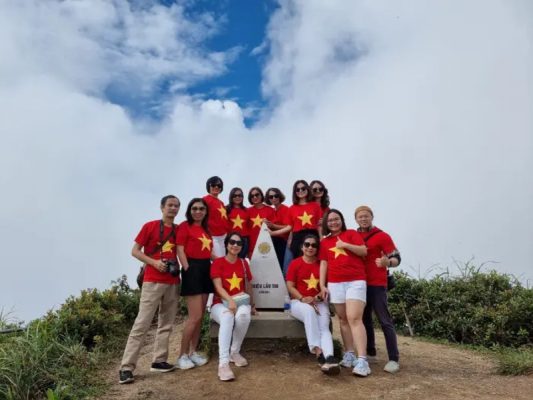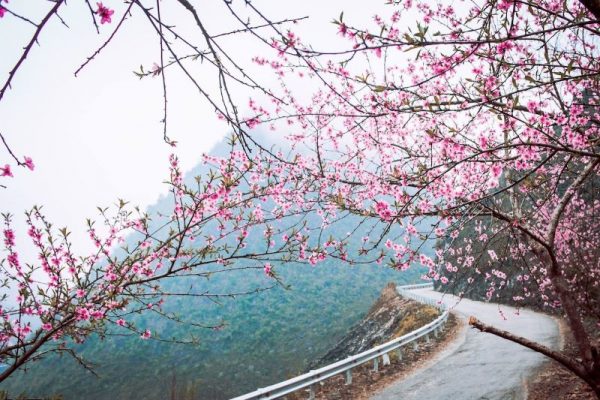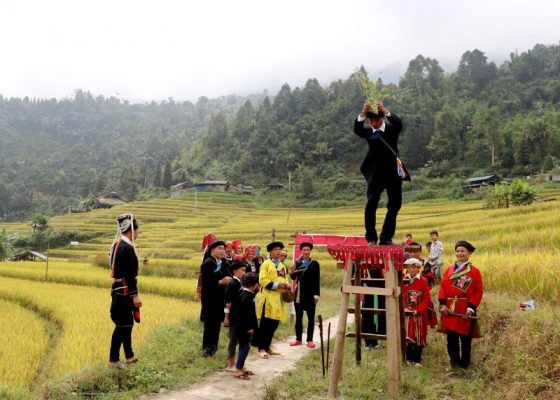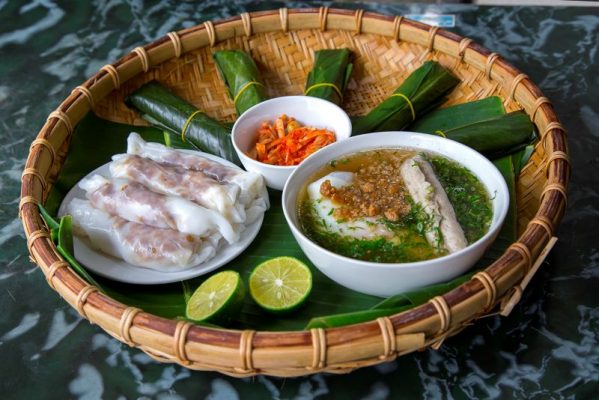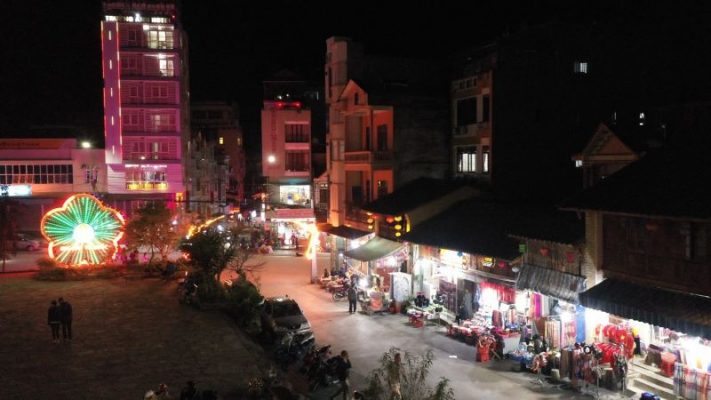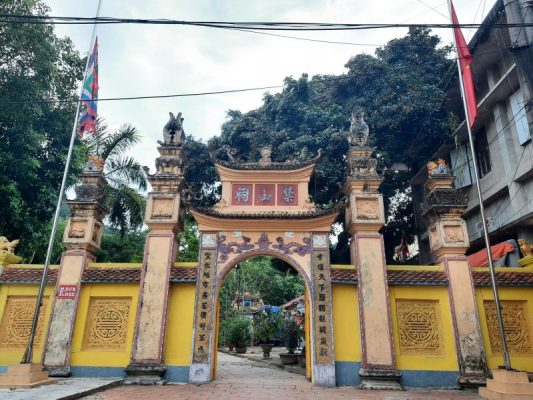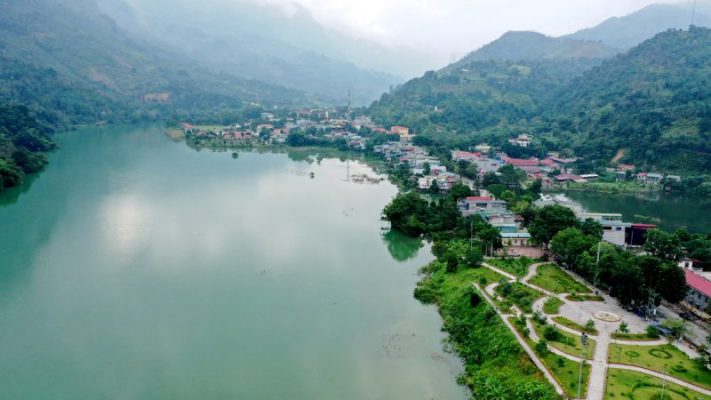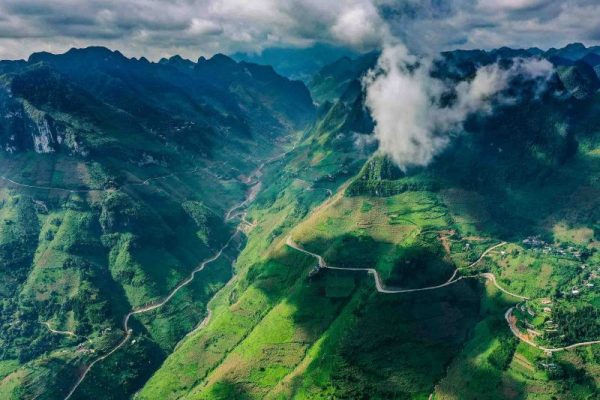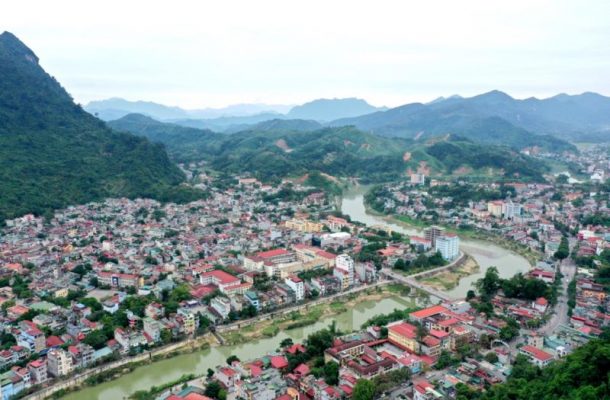Vietnam, the charming S-shaped land, has long been a magnet for tourists from all around the world. It harbors countless wonders, from majestic and splendid natural landscapes to unique cultural heritages, along with a rich and colorful culinary scene. However, alongside its beauty, Vietnam also presents certain issues that one should be aware of before setting foot here.
In this article, Ha Giang Motorbike Tours will help you explore both the good and bad things in Vietnam, so that you can prepare yourself adequately for your upcoming journey.
Good things in Vietnam
Vietnam is a beautiful country with many fascinating things to offer to tourists. However, there are both good and not-so-good aspects of Vietnam that you should know when traveling. Below, Ha Giang Loop Tours will introduce to you:
Bargain when shopping in Vietnam
Haggling in Vietnam is deeply rooted in local customs and is a prevalent practice when shopping at lively markets, street vendors, or small stores. Establishing a connection with the seller through friendly banter is an essential part of the bargaining process. In fact, it’s expected, and sellers might even feel disappointed if you don’t engage in it!
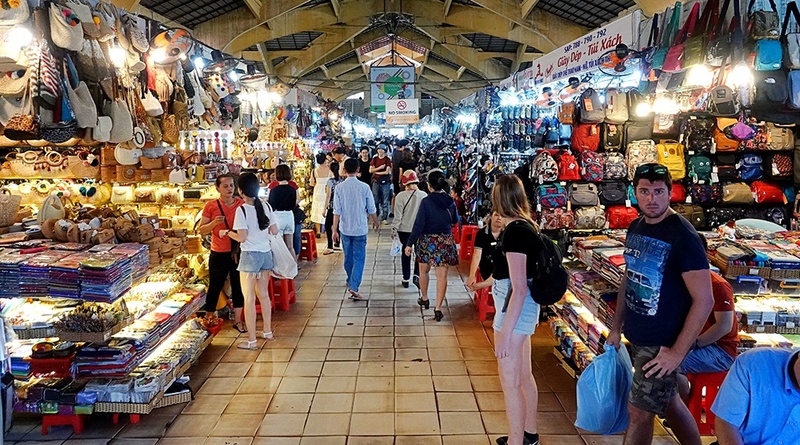
Approaching bargaining with a respectful and light-hearted attitude is crucial. Begin by expressing genuine interest in the product you want to buy. Strike up a conversation and build rapport with the seller before discussing prices. To effectively negotiate, be ready to propose a lower price than the initial asking price. It’s common for sellers to set higher prices, especially for foreign tourists. Don’t hesitate to counteroffer and aim for a fair price that satisfies both parties.
Throughout the negotiation, maintaining a friendly and patient demeanor is vital. Sellers might playfully walk away or feign offense at a low offer, but staying composed and continuing the discussion with a willingness to compromise is key to reaching a mutually beneficial agreement.
Bargaining in Vietnam is not just about getting a good deal; it’s also about the cultural exchange between buyer and seller. So, enjoy the experience, have fun, and immerse yourself in the unique ambiance of bargaining in Vietnam. If you join our motorcycle tours in Vietnam, you’ll have ample opportunities to practice bargaining as most of our tours include visits to local markets.
See more: Homestay Vietnam: Top choice for Vietnam tours
Good security
The crime rate in Vietnam is relatively low, especially for serious crimes such as murder and robbery. Vietnamese people are friendly, hospitable, and always willing to assist tourists. The Vietnamese government also places great emphasis on tourism security, regularly implementing crime prevention measures and providing support to tourists when necessary. Vietnam’s tourism industry is growing with many professional and reputable tourism services, making it easy for tourists to find information and receive assistance when faced with difficulties.
However, tourists should also note some things to ensure their own safety, such as safeguarding personal belongings, being cautious when traveling at night, staying vigilant against scams, and respecting local cultural norms.
Pay easily in Vietnam – One of the good and bad things in Vietnam
Accessing ATM services in Vietnam has become increasingly convenient and traveler-friendly, catering to the needs of both locals and tourists. The country boasts a well-developed banking system with numerous ATMs available in even the smallest towns and popular tourist destinations. Most ATMs accept international cards such as Visa, MasterCard, and UnionPay, facilitating easy access to funds for foreign visitors. However, it’s important to note that withdrawals can only be made in Vietnamese Dong, and ATM fees are applicable.
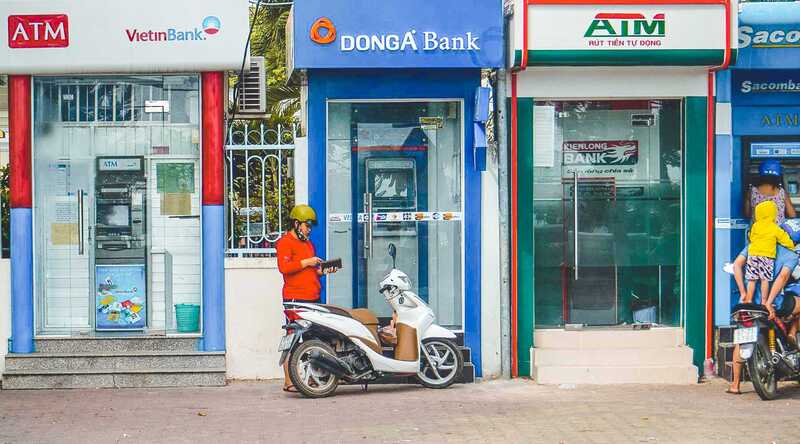
A significant advantage of using ATMs in Vietnam is the availability of English language options on many machines. This user-friendly feature simplifies transactions for non-Vietnamese speakers, enabling them to navigate the options easily and select desired services. While ATMs are generally reliable, it’s advisable to use those located in reputable banks or established areas to ensure transaction safety. Additionally, checking with your bank about applicable fees or withdrawal limits beforehand is recommended. Opting for AgriBank ATMs can be advantageous due to lower fees, as they are among the most popular and cost-effective options in Vietnam.
If you join our guided motorcycle tours in Vietnam, ATMs won’t be a concern during your trip. Our tours cover all expenses, including meals, accommodation, and gasoline, providing a hassle-free and worry-free experience. Nonetheless, there will be ATMs along the motorcycle route for any additional needs, ensuring a seamless journey.
Travel to Vietnam all year round
Vietnam’s weather provides travelers with a diverse and dynamic experience. Due to regional variations, the country features distinct seasons in different parts, necessitating careful consideration of the best time for motorcycle travel based on your desired regions.
In the northern region, Vietnam experiences four seasons: spring (February to April), summer (May to August), autumn (September to November), and winter (December to January). Winters in the north can be chilly, with notable drops in temperature. Spring or autumn is the ideal time for motorcycle travel in North Vietnam, offering pleasant weather conditions.
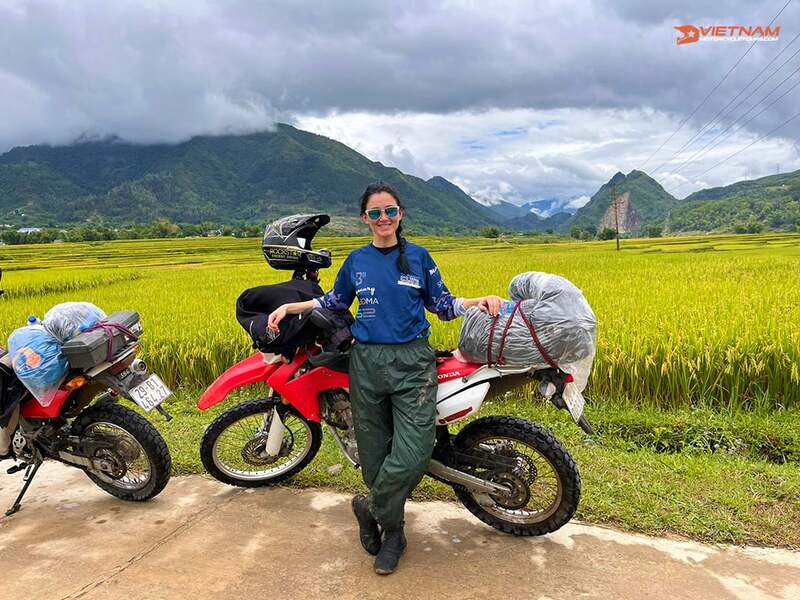
Central Vietnam boasts a more temperate climate, with a dry season (February to August) and a wet season (September to January). The summer months are hot and dry, while the wet season brings occasional heavy rainfall and typhoons. Opting for a motorcycle tour during the dry season is advisable in central Vietnam. In contrast, Southern Vietnam has a tropical climate characterized by a dry season (December to April) and a rainy season (May to November). The dry season is typically hot and humid, while the rainy season sees frequent showers and occasional storms. December to April is considered the prime time for motorcycle touring in southern Vietnam.
When planning your trip to Vietnam, it’s crucial to consider the weather patterns in the specific regions you plan to visit. Generally, the months from February to June and September to November offer pleasant weather and fewer crowds. However, it’s advisable to check specific weather forecasts for your desired destinations.
Regardless of when you choose to travel in Vietnam, embarking on a motorcycle tour promises a memorable and enriching experience. From immersing yourself in the country’s rich culture to marveling at its stunning landscapes and intriguing history, motorcycle travel offers a truly immersive journey.
Traveling by motorbike
Forget the ordinary, embrace the extraordinary! Buckle up for an unparalleled motorbike odyssey that plunges you into the heart of Vietnam. This immersive adventure, crafted for intrepid souls, promises a tapestry of diverse landscapes, vibrant culture, and picturesque routes that will leave you breathless.
For a taste of what awaits, delve into the real-life experiences shared by fellow riders on Tripadvisor (search “Vietnam motorbike tours reviews”). Their firsthand accounts, accumulated over a decade of motorbike tours, paint a vivid picture of this unforgettable journey.
Imagine the freedom of a motorbike – the ability to pull over at any mesmerizing vista, uncover hidden gems, and truly absorb the symphony of sights, sounds, and smells that define Vietnam. From navigating the verdant terraces of Northern Vietnam to conquering the majestic Hai Van Pass, or exploring the bustling lifeblood of the Mekong Delta’s floating markets, every twist and turn promises a unique story waiting to unfold. These are experiences that will be etched in your memory forever.
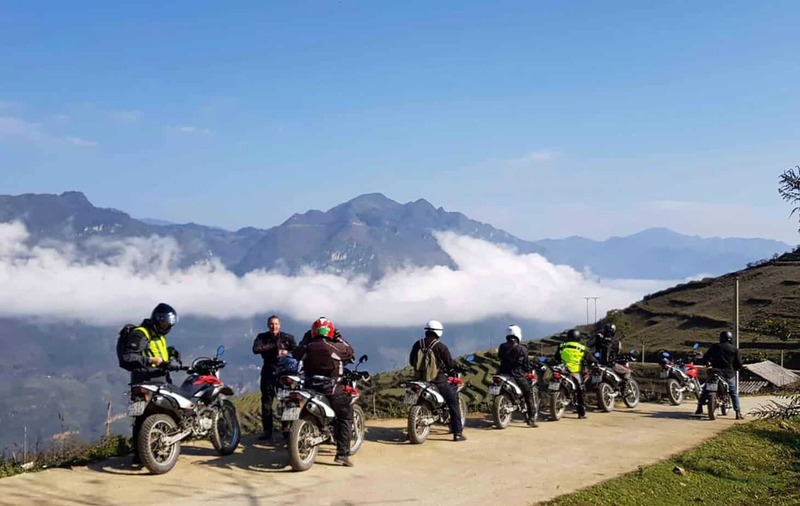
But the magic of a motorbike adventure in Vietnam goes beyond the scenery. It’s about venturing off the beaten path and encountering the soul of the country in remote villages. Witness the timeless traditions of rice farmers nurturing their crops. Immerse yourself in the vibrant energy of local markets. Feel the genuine warmth of rural communities, and gain a profound understanding of Vietnam’s rich cultural tapestry. This is a journey that goes beyond sightseeing; it’s a chance to connect with the country and its people on a deeper level.
Popular and safe technology vehicles
Grab Taxi has become a go-to transportation choice for locals and tourists alike in Vietnam. While it offers the undeniable benefits of convenience and accessibility, it truly shines for travelers. Here’s why downloading Grab before your Vietnam trip is a smart move.
Grab offers a hassle-free way to book rides anytime, anywhere, including all airports in Vietnam. With a few taps on your smartphone, you can hail a taxi and track its arrival in real-time. This eliminates the need to flag down taxis or struggle with language barriers when explaining your destination. Plus, Grab displays fares clearly upfront, removing any worries about inflated prices or language misunderstandings. Overall, Grab is arguably the most convenient transportation option compared to public alternatives.
Vietnam is friendly and hospitable
Vietnam’s reputation for hospitality precedes itself, renowned for its genuine care, friendliness, and warmth towards visitors. This welcoming spirit is deeply ingrained in Vietnamese culture, making guests feel right at home throughout the country, from bustling cityscapes to hidden villages.
The moment you arrive, a heartfelt smile and a respectful bow often greet you, instantly putting you at ease. Vietnamese people take great pride in sharing their rich heritage and ensuring a memorable experience. They readily assist foreigners, whether it’s with directions, local attraction recommendations, or simply friendly conversation.
Vietnamese hospitality goes beyond polite gestures. It’s embodied in the enticing Vietnamese food, bursting with flavorful dishes and a vibrant street food scene. Travelers are frequently invited to share meals at communal tables, fostering a sense of camaraderie and connection. Vietnamese families are known for extending their warmth as well, welcoming visitors into their homes to share meals or celebrate special occasions.
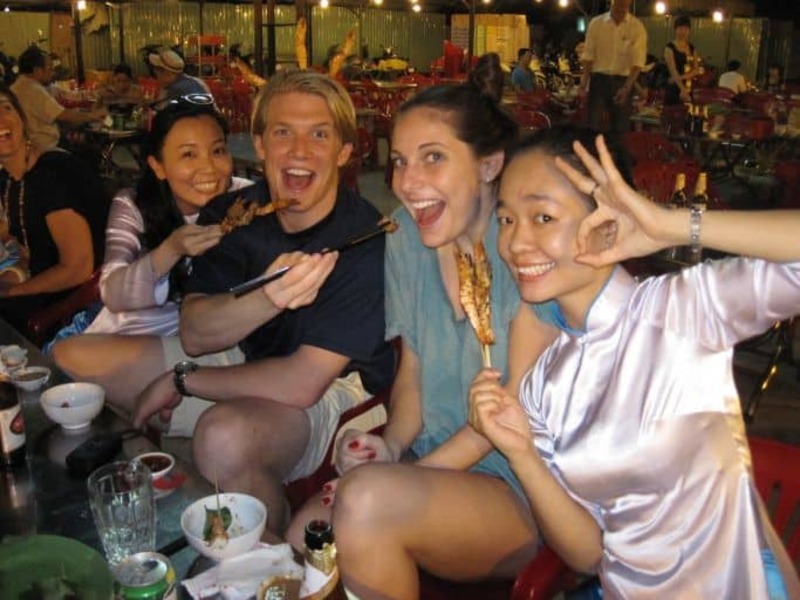
This warmth extends to helping those in need. Lost travelers, language barriers, or unexpected illnesses are met with a helping hand and genuine comfort, making visitors feel like cherished members of an extended family.
In essence, Vietnamese hospitality reflects the nation’s core values: respect, kindness, and community. The genuine warmth and welcoming nature of the Vietnamese people leave a lasting impression, transforming Vietnam from a destination into a place where you feel truly embraced.
Beautiful nature and interesting culture
Vietnam is known as a beautiful paradise with countless majestic and poetic landscapes. From the towering mountains, the green rice fields stretching to the wild beaches with pearl white sand and clear blue water, all create an extremely vivid and impressive natural picture.
The most famous is Ha Long Bay – a World Natural Heritage recognized by UNESCO, which owns rows of limestone islands rising from the blue water. Visitors here can tour the bay by kayak or explore secret caves.
If you love fresh, cool atmosphere, Sapa, Cao Bang, Ha Giang are the ideal destinations for you. This place is famous for its lush green hills, rustic ethnic minority villages and picturesque terraced fields. Visitors can go hiking, trekking, learn about local culture or simply enjoy the fresh air of the Northwest mountains and forests.
Bad things in Vietnam
In addition to the good things above, there are also bad things in Vietnam, tourists need to prepare mentally before traveling.
Multiple visa procedures
The visa application process for tourism in Vietnam can be somewhat complicated. To avoid last-minute hassles, it’s crucial to thoroughly research visa requirements before embarking on your trip. While some nationalities are visa-exempt or eligible for visa on arrival, many others need to apply for a visa in advance. It’s advisable to proactively plan and obtain the appropriate visa beforehand to ensure a smooth journey.
Fortunately, applying for an electronic visa (e-visa) through the government’s official website has become much easier. This process typically takes from 3 to 5 working days, but note that it may sometimes take longer. Immigration officers work from Monday to Friday, excluding Saturdays, Sundays, and special national holidays such as April 30th (Liberation Day) or May 1st (International Labor Day). To ensure a hassle-free visa application process, it’s recommended to contact the immigration office and apply for the visa at least 7 to 10 days before departure.
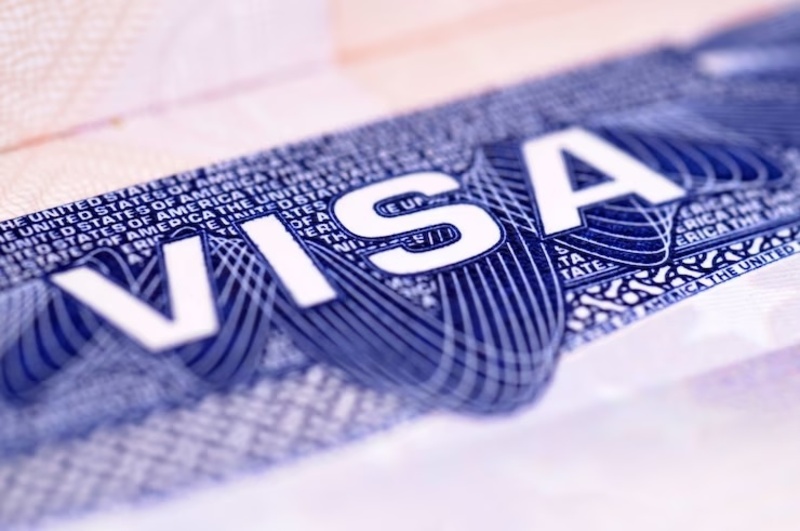
Public transportation is underdeveloped
Traveling to Vietnam – a vast and diverse country – means you will have to move often. Although there are many transportation options, local buses are popular due to their economy and convenience. However, it is important to be aware of potential drawbacks when traveling by bus in Vietnam. The bus experience in Vietnam can be a bit unpleasant due to limited leg room, noise and disturbance. Besides, difficult road conditions and lack of personal space and privacy can also cause inconvenience.
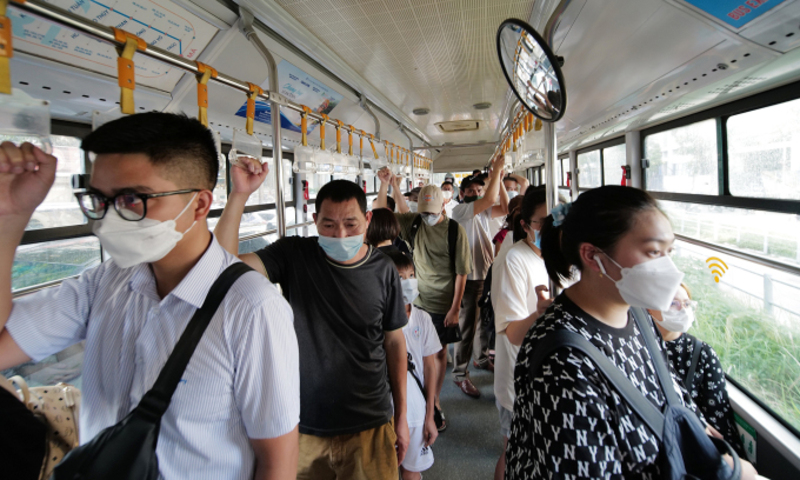
Motion sickness is also a concern, and some travelers may worry about hygiene and safety. It’s a good idea to research different bus companies, read reviews, and consider alternative modes of transportation based on personal preferences. It’s important to note that while taking the bus may not be the most ideal option, it can still be a viable option for budget-conscious travelers.
Disagreements over language
English, French, and Spanish are not widely used in Vietnam as in some other Asian countries, which can create language barriers for many travelers. Vietnamese people, in general, are not truly proficient in these languages. Therefore, using tools like Google Translate or language apps to effectively communicate with local people during your trip to Vietnam is essential.
Whether you’re navigating, ordering food, or engaging in basic conversations, having a translation tool available will significantly enhance your interaction. Using Google Translate or similar apps will help you overcome language barriers and connect with local people, making your journey to explore Vietnam richer and more enjoyable.
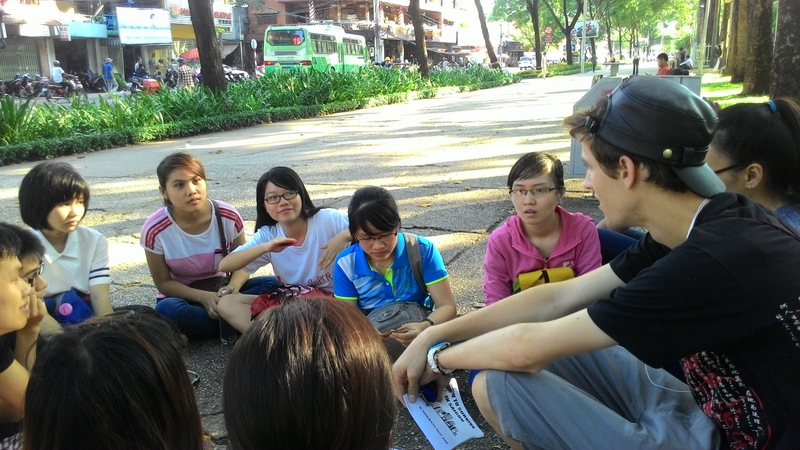
Environmental pollution
Vietnam, like many other developing countries, is facing significant challenges regarding pollution. Alongside rapid industrialization, urbanization, and population growth, Vietnam is grappling with various forms of pollution, causing negative impacts on the environment, community health, and overall quality of life, even hindering tourists from returning to Vietnam for a second visit.
The Vietnamese government, along with organizations and communities, recognizes the importance of addressing pollution issues. Initiatives are being implemented to improve environmental regulations, promote sustainable activities, and encourage public participation in pollution prevention and control. Vietnam remains beautiful, but pollution issues need to be addressed more expeditiously. What is necessary is for all stakeholders, including the government, industries, communities, and individuals, to collaborate effectively in combating pollution. Through collective efforts, Vietnam can aim for a cleaner, healthier environment for its people and future generations.
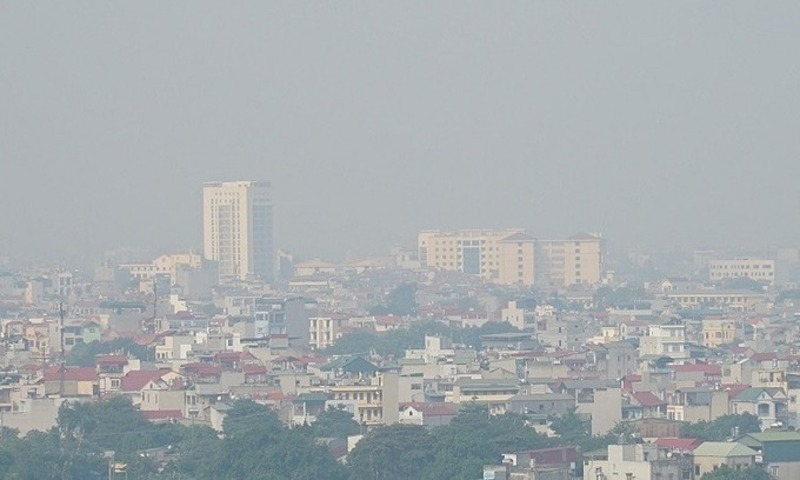
The state of beheading in Vietnam
The overcharging of tourists is one of the pressing issues that negatively impacts Vietnam’s tourism industry and its international image. This behavior not only leaves visitors feeling upset and uncomfortable but also poses serious consequences. Therefore, when visiting Vietnam, tourists should inquire about prices before making purchases and prioritize establishments that clearly display prices.
Here are the insights from Meditours Ha Giang about the good and bad things in Vietnam that you need to know when traveling. We hope this article will help you gain more useful information.

